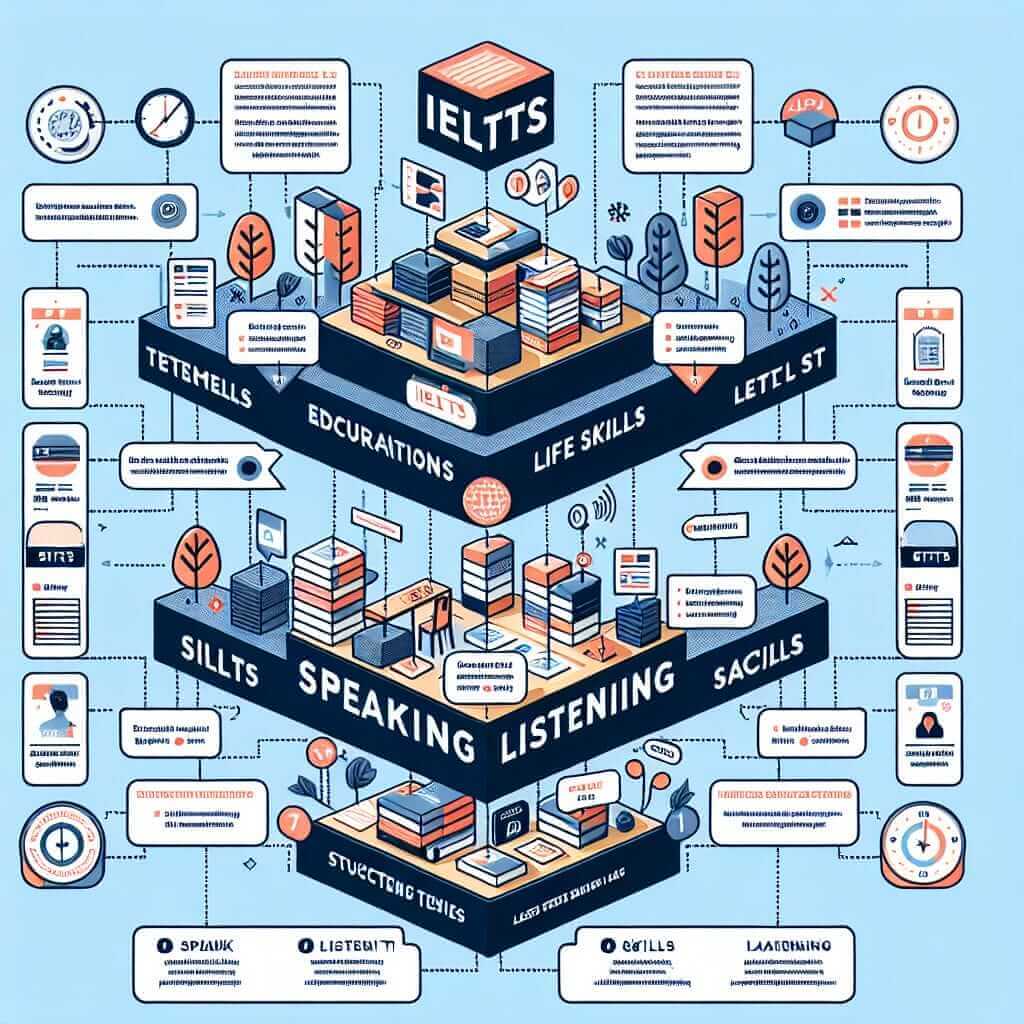Introduction
For those seeking to migrate to the UK for work, family, or study, demonstrating English language proficiency is essential. Beyond the well-known IELTS Academic and General Training tests, there exists a specialized exam called IELTS Life Skills. This test evaluates your ability to handle everyday social and practical situations using English. In this guide, we’ll delve deep into the intricacies of IELTS Life Skills, providing you with a comprehensive understanding to confidently approach and excel in this assessment.
Understanding IELTS Life Skills
What is IELTS Life Skills?
IELTS Life Skills is specifically designed for individuals who need to prove their English speaking and listening skills at Common European Framework of Reference for Languages (CEFR) levels A1, A2, and B1. This test focuses on assessing your ability to engage in practical, everyday conversations and understand spoken English in various contexts relevant to life in the UK.
Why is IELTS Life Skills Important?
This test plays a crucial role in the UK visa application process for specific categories. For instance, if you are applying for:
- A visa to join a spouse or partner already residing in the UK
- A visa for a family member of a settled person
- Indefinite leave to remain in the UK
- Citizenship in the UK
…you will likely need to demonstrate your English proficiency through IELTS Life Skills.
How is IELTS Life Skills Different from Other IELTS Tests?
Unlike IELTS Academic or General Training, IELTS Life Skills focuses solely on speaking and listening skills. It doesn’t have separate reading or writing components. This emphasis on practical communication reflects the test’s purpose: to ensure you can navigate everyday situations in an English-speaking environment.
IELTS Life Skills Test Format
IELTS Life Skills is available at two levels:
- A1 Speaking and Listening
- B1 Speaking and Listening
Both levels follow a similar format:
- You will be assessed in pairs alongside another candidate.
- One examiner will conduct the assessment.
- The test will center around a familiar social context, such as making appointments, discussing work, or sharing personal experiences.
The examiner will assess your ability to:
- Communicate clearly and effectively
- Understand spoken English
- Engage in conversations
- Express opinions and provide information

Tips for Success in IELTS Life Skills
- Focus on Functional Language: Familiarize yourself with common phrases and expressions used in everyday situations. Think about how you would:
- Ask for directions
- Make an appointment
- Describe your job
- Discuss your hobbies
- Practice Listening to a Variety of English Accents: The UK is home to a diverse range of accents. Expose yourself to different regional accents through movies, TV shows, and podcasts to enhance your listening comprehension.
- Speak Naturally and Confidently: Don’t try to memorize answers or use overly formal language. The examiner wants to assess your natural communication skills. Relax, be yourself, and speak clearly.
- Take Active Part in the Conversation: Engage actively with both the examiner and your fellow test-taker. Ask questions, respond thoughtfully, and contribute to the discussion.
- Utilize Practice Materials: Explore official IELTS Life Skills practice materials, including sample tests and task examples, to familiarize yourself with the test format and practice your skills.
Conclusion
IELTS Life Skills is a unique test that plays a crucial role in the UK visa application process. By understanding its format, practicing your speaking and listening skills, and familiarizing yourself with everyday English vocabulary, you can approach this test with confidence and maximize your chances of success. Remember, the key is to demonstrate your ability to communicate clearly and effectively in practical, real-life situations. Good luck!